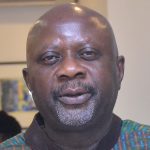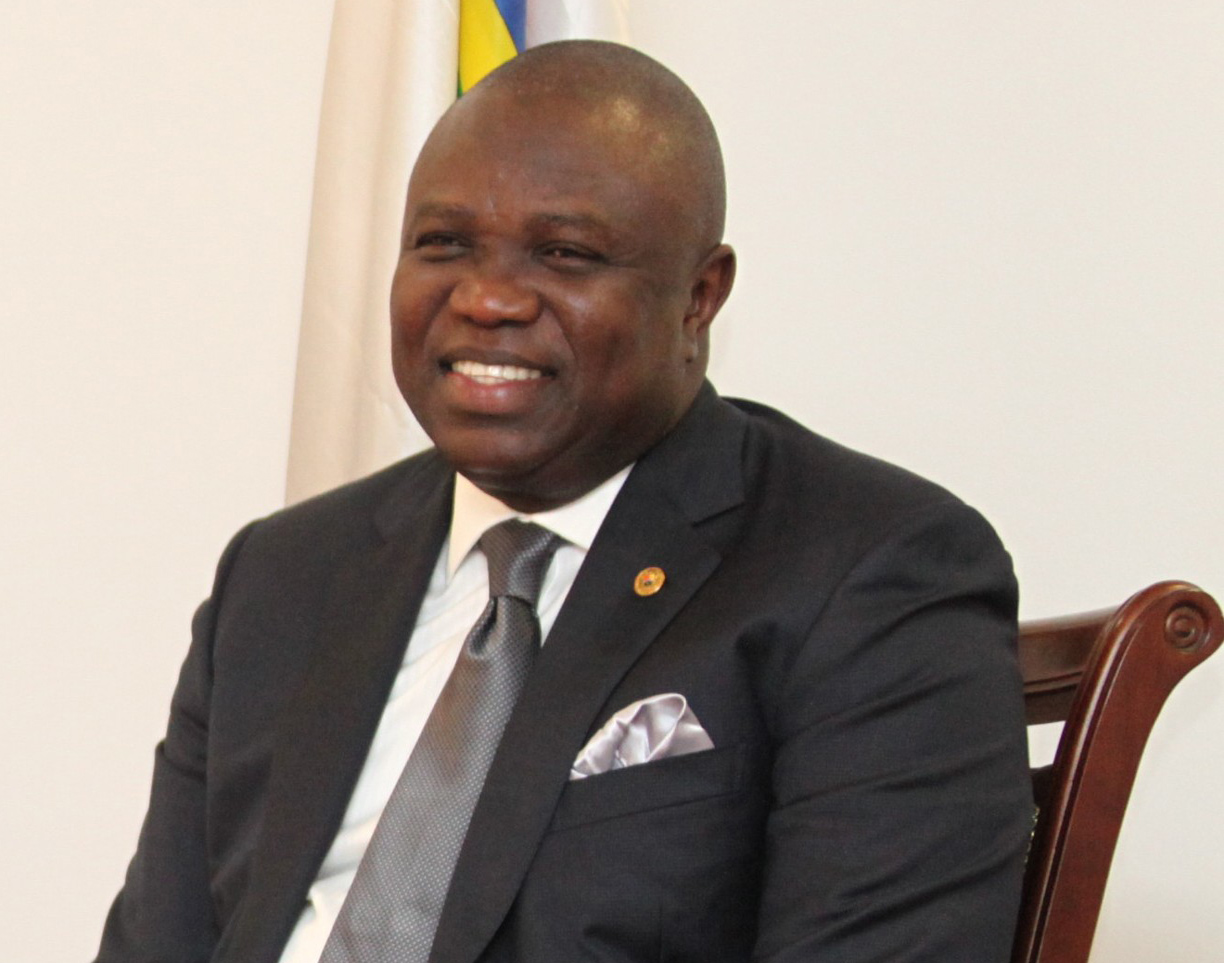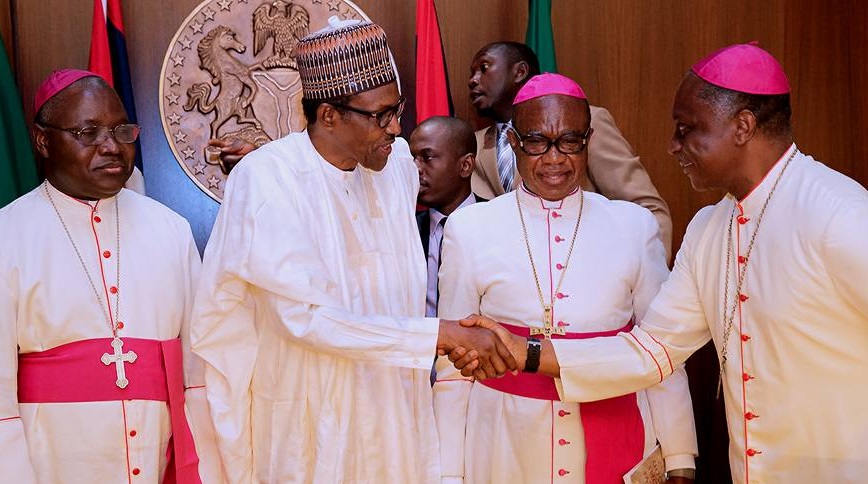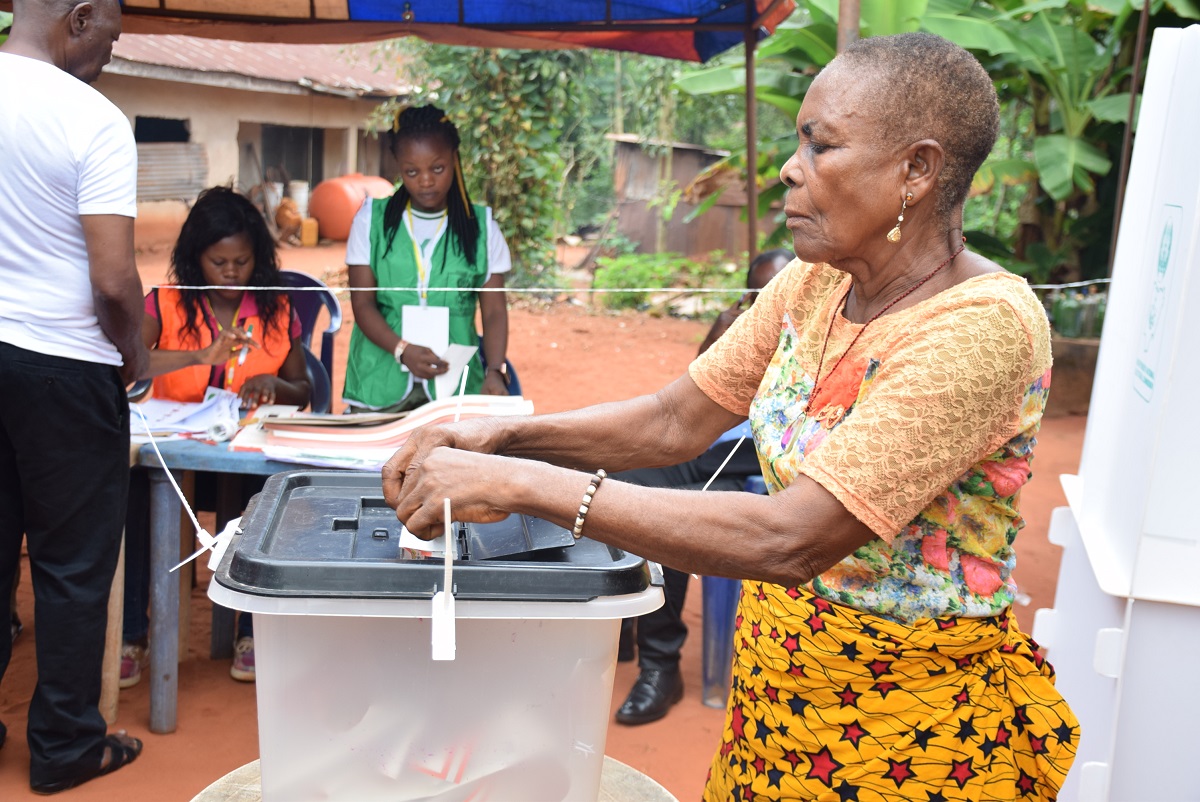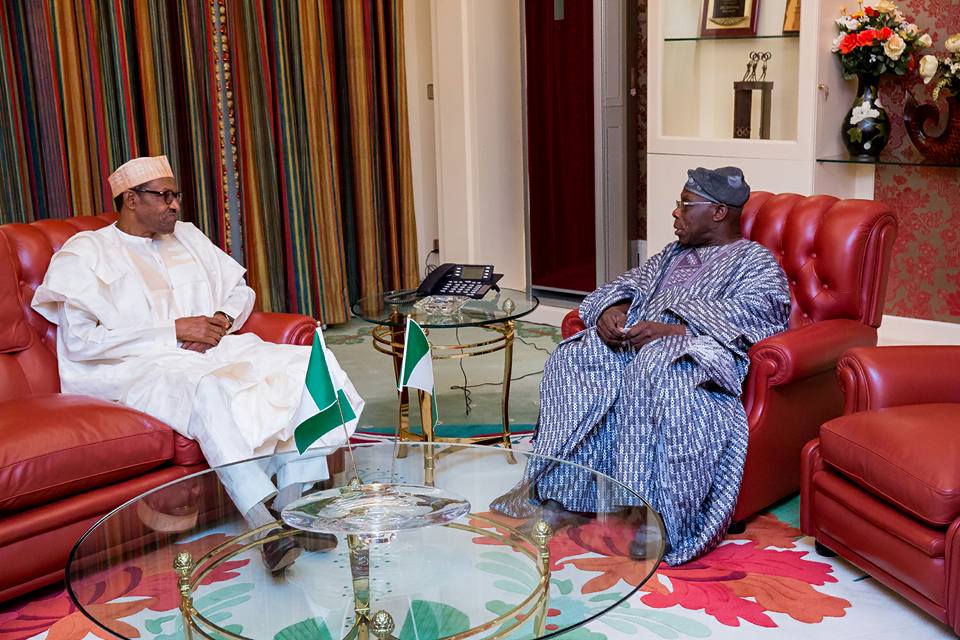The title of this piece was borrowed, I should say, from the book “The Open Sore of a Continent” written by Prof. Wole Soyinka, Nigeria’s playwright and Nobel laureate for Literature except that the Nigerian nation may have ceased being the continent’s “open sore” in many ways since the emergence of the present government.
Subtitled “A Personal Narrative of the Nigerian Crisis” this book essentially interrogates the military jackboot of Nigeria’s former head of state Gen. Ibrahim Babangida’s brazen annulment of the June 12, 1993 presidential election at the instruction of Gen. Sanni Abacha who would later succeed him, based on certain agreements between the duo. Gen. Abacha was to later preside over the most repressive government in the country’s history to such extent that anyone of substance who called himself as having the audacity and courage to criticise the “maximum ruler” was fair game for murder and assassination, including Soyinka himself. The June 12 presidential election annulment became the “open sore” of the African continent because it was the most brazen truncation of the people’s wish that unanimously elected who they wanted to lead them in the freest, fairest and transparent election ever.
For those who understands his character, Chief Olusegun Obasanjo’s so-called Special Press Statement to President Muhammadu Buhari which he titled “THE WAY OUT: A CLARION CALL FOR COALITION FOR NIGERIA MOVEMENT” was long overdue. It was late in coming because Obasanjo has not succeeded in influencing the Buhari government in any way, shape or form. After almost three years, he has not succeeded in ingratiating any of his cronies in the likes of Dele Momodu and Oby Ezekwesili into the Buhari government. This turn of event he simply cannot stomach because he’s used to having his way with any government. He in fact unilaterally installed our governments for us even in democratic dispensations except the Buhari government. So, those who are familiar with his modus operandi knew that it was just a matter of time for him to make his next move of pulling down this government—-literally.
As expected, Nigerians from all walks of life have reacted—-and will continue to react—-either way to Obasanjo’s press statement not only because of the allegations contained therein (which are scathing enough but largely without basis), but also the contradictions inherent in the allegations when they’re juxtaposed with the antecedents of the writer as a Nigerian leader who had affected the country’s political and economic wellbeing more than any anyone. The open letter, which the media had inappropriately dubbed a “Letter Bomb” to the egotistic, vainglorious and vacuous self-satisfaction of the writer was essentially nothing, but an empty barrel that makes the loudest noise as we shall see presently.
Advertisement
The kernel of his special press statement—-it seems to me—-was what he referred to as “The lice of poor performance” in which “poverty, insecurity, poor economic management, nepotism, gross dereliction of duty, condonation of misdeed – if not outright encouragement of it, lack of progress and hope for the future, lack of national cohesion and poor management of internal political dynamics and widening inequality” still holds sway in the present government. Otherwise, the rest of his missive was nothing but his predilection for grandstanding, self-glorification and his well-known grand strategy of tearing everything apart in order to arrive at a pre-determined, self-serving destination. And Nigerians now know that his “Coalition of Nigerians,” his so-called “Third Force” which had since birthed, is that destination.
One must thank God for little mercies that the one (Obasanjo) who made the aforementioned sweeping and negative generalization of what he believes characterized the Buhari administration is not an unknown quantity. Obasanjo was at one time or another at the apex of the two most popular systems of government in a contemporary world: military and democratic governments. It is therefore on the basis of this “lice of poor performance” which Obasanjo had brought into the doorsteps of Buhari’s presidency that this piece will attempt to interrogate.
Granted the intrusion of the military into governance of any nation has always been an aberration in civilized societies because the institution is never structured nor trained for political/administrative experience but to prosecute wars against the enemies of the society in which it is domiciled. But the world had also witnessed military despots who transformed their countries beyond expectations to the eternal graciousness of their own people. There are quite a few examples in the African continent before the interventions of external forces through the collusion of internal reactionary elements snuffed life out of them. These are Eqypt’s Gamal Abdel Nasser, Burkina Faso’s Thomas Sankara and yes, Libya’s Moammer Gadhafi just to name a few. History will never record Chief Olusegun Obasanjo to be among the pantheon of military despots who transformed their countries for the greatest good of the greatest number.
Advertisement
As a military ruler, one would have thought that Obasanjo would have gifted the country to someone with sound mind and the best leadership credential when he knew intrinsically, that he had not what it took to transform his society. But Obasanjo superintended the country’s first blatant and egregious election rigging that bequeathed (and deliberately) the country to an incompetent and clueless president in the person of Alhaji Shehu Shagari and his addicted-to-unearned-money members of his party. Obasanjo it was, before the presidential election who declared that the best candidate may not win; a veiled reference to Chief Obafemi Awolowo whom he had determined must be prevented from winning the election despite his sterling leadership qualities. That was the beginning of his vice political grip on the nation that he became so addicted to that he declared in the 21st century that elections in a representative democracy are “do or die” affairs.
Obasanjo’s laundry list contained in his “lice of poor performance” levelled against Buhari were not only another opportunistic and diabolical (although these two traits are among his trademarks) attempt to call the proverbial dog a bad name in order to hang it, but it beggars belief that he could not even see the hypocrisy in his allegations that most of what he attempted to hang on Buhari’s neck actually found their ways into Nigeria’s governance lexicon when he was a military ruler as well as a civilian president, if not exacerbated by him. Much has been said that Obasanjo’s “poor performance” indices are not peculiar to Buhari and his administration. On his allegation that poverty still stalks the land on Buhari’s watch, it should be pointed out here that in the year 2000, according to the United Nation Development Programme (UNDP) “Nigeria’s relative poverty measurement stood at 54.4 per cent but increased to 69 per cent or 112.518 million Nigerians by 2008. Using the absolute poverty measure of this organization, what this means is that “54.7 per cent of Nigerians were living in poverty in 2000 but this increased to 60.9 per cent in 2008.” What the UNDP statistics also tells us is that income distribution became more skewed towards a lesser percentage of the Nigerian population. From the foregoing, one then wonders if Obasanjo still remembers who was Nigeria’s president from 1999 until 2007?
Perhaps Obasanjo has been able to get away with his self-righteousness and inflated ego knowing full well that Nigerians are largely gullible and they can be bamboozled because they’re largely devoid of independent thoughts or critical thinking on issues of national importance. One may have to ask him where in the insecurity column the Niger Delta militancy that first reared its ugly head under his watch should be placed. The fact remains that Nigeria witnessed the highest internal insecurity during Obasanjo’s tenure than at any time in its history. What is more, a leader whose country is far behind in all indicators of human development such as poverty, insecurity and infrastructural development so glaringly present in his administration and desirous of lifting his country from this human development abyss wouldn’t have thought it fit that the best economic policy that could only guarantee growth was to have a zero debt overhang. As president, Obasanjo implemented an economic model in modern times that financial experts around world had since described as the “largest transfer of wealth by a relatively poor nation (Nigeria) to nations and agencies that are already affluent by any standards.” In 2006, Obasanjo paid almost $20 billion to two giant international syndicates: Paris Club and London Club of Creditors to settle the nation’s foreign debts. The former president was all too willing to sacrifice national interests on the altar of his own personal interest to have gifted the international creditors this incredible amount because he wanted to become the UN Secretary-General after the expiration of his tenure.
Obasanjo is probably too far gone in his self-conceit and evil machinations to see, let alone acknowledge the four fingers that readily points at him whenever he points an accusing finger at someone else. His rap sheet of egregiousness and criminal acts as an erstwhile chief of state is probably as long as the road from his Ota farm to the Lagos heartland. Rather than waste too much time and energy to enumerate his many sins against the Nigerian state—-most of which are patently criminal—-perhaps it is better to draw the readers’ attention to what Biodun Jeyifo, a professor in Harvard said about Obasanjo in his No. 258 article in The Nation on Sunday on February 4, 2018. Hear him: “In power, Obasanjo hated workers’ unions and their leaders with passion, especially the most radical and genuine among them. He hated student activists, especially the most courageous and outspoken among them. He couldn’t stand civil and human rights organizations and their spokespersons. He it was who, as military head of state, sent paramilitary forces into some universities to shoot and kill students. He sacked militant lecturers and those he couldn’t sack he hounded mercilessly. He had absolutely no use for the power of the masses of Nigerians to either elect or vote out of office their leaders and this was why he presided over the worst cases of election rigging in our country’s history since the return to civilian rule. The only concentration of ordinary Nigerians that Obasanjo loved and embraced were the crowds of bought and manipulated supporters in PDP rallies; any other assemblage of Nigerians other than for religious purposes terrified him and he had them closely monitored and controlled. Popular democracy, even populism of any kind from the pen of such a political hegemon as Olusegun Obasanjo is like saintly beatitudes from the mouth of a perjurer and a murderer.” Need one say more?
Advertisement
Obasanjo never makes accusations without an ulterior motive. It’s been said by some insiders in government that he just was not bold enough to specify Lawal Musa Daura (DG, DSS) and Mamman Daura as the major focus of his nepotism charge. But one should ask the holier-than-thou former president if he knew one Iyabo Obasanjo who was an Ogun State Commissioner for Health and later elected senator from Ogun Central senatorial district. Obasanjo’s inclusion of “gross dereliction of duty” in the list couldn’t have been anything but a reference to Buhari’s medical treatments that took some months outside the country. For a man who deliberately foisted an obviously sick man on the nation’s Number One seat who later died in office, it’s not beyond a man so diabolical with a false sense of “only-me-can-choose-for-Nigeria” to have made that veiled reference to the president’s then health challenge. For someone who is not a “sickler” to have been given a complete blood transfusion, there’s probably more to the president’s sickness than meets the eye that Nigerians hope the truth of the matter would be revealed at the appropriate time.
It is laughable that Obasanjo would accuse anyone, let alone President Buhari about “condonation of misdeed” in the polity. Since he did, one may want to ask him who authorised the kidnapping—-as a first step in a carefully planned script of his impeachment—- then governor Chris Ngige by Chris Ubah, a low life social misfit and his gang because the former Anambra State governor refused to surrender the state’s resources to Obasanjo’s cronies in the state. This is just one example. Perhaps Obasanjo’s idea of “progress and hope for the future” is when $16 billion was spent on power without any increase even by 1MW of electricity to the national grid. Or his definition of “national cohesion and poor management of internal political dynamics and widening inequality” are his authorization of the mass massacre that took place in Odi and Zaki Biam villages by the army, his unilateral and illegal sacking of governors and imposition of state of emergencies and selling the nation’s major assets to his cronies respectively.
Obasanjo had thrown down the gauntlet against Buhari and his administration. This government would be mistaking that the man would not go to any length to undermine it at every turn in making sure that its life terminates in 2019, including appealing to the international community, most especially the western powers to withdraw their supports for the president. No doubt, Obasanjo is still revered by the western powers not because of his leadership qualities, but simply because he protects and projects their interests at the expense of the country and its people. One hopes that this will be his last letter to any Nigerian government by how this old scumbag who saw absolutely nothing wrong with making out with his daughter-in-law would be permanently checkmated once and for all so that Nigeria can be. A man who apparently attempted to subvert the constitution in his bid for a third term has no moral right or the credibility to tell Buhari not to seek re-election for a second term that’s clearly guaranteed under the constitution. Nigerians and any government trying to do right by the people will never breathe easily until a significant segment of the elites that troubles the land are politically and economically decapitated. Obasanjo typifies the open sore of the Nigerian society who should be permanently ostracised if the country must progress.
Femi Odere is a media practitioner. He can be reached at femiodere@gmail.com.
Advertisement
Views expressed by contributors are strictly personal and not of TheCable.
Add a comment
